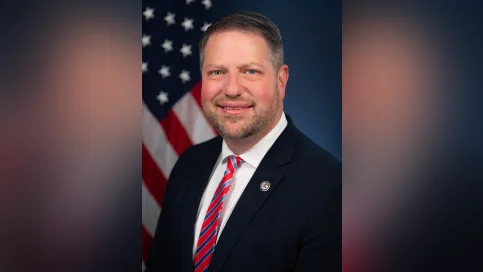Jonathan D. Ross U.S. Attorney | U.S. Attorney for the Eastern District of Arkansas
Kristy Loree Gordon of Quitman, Arkansas, has been sentenced to four years’ probation after pleading guilty to the excavation and removal of archaeological resources, including Native American human skeletal remains, from public land. The sentence was delivered by United States District Judge D. P. Marshall, Jr., as announced by Jonathan D. Ross, U.S. Attorney for the Eastern District of Arkansas.
Gordon, 43, was indicted on June 6, 2023, for excavating and removing items from a known Native American archaeological site in the Ozark-St. Francis National Forest without proper permits. She pleaded guilty to the charge on March 13, 2025.
The investigation began when hikers reported finding possible human skeletal remains near Pouge Springs in Stone County on November 19, 2020. Law enforcement officers from the Stone County Sheriff’s Office and the U.S. Forest Service responded to the scene. Initially, Gordon told authorities she found bones while digging with a stick and then covered them up before notifying law enforcement.
However, further investigation revealed evidence of extensive digging at the site and that no permits had been issued for such activity. A U.S. Forest Service archaeologist confirmed it was a protected Native American site.
In a later interview with federal agents, Gordon admitted she had not told the truth in her initial statement. She acknowledged she had intentionally gone to dig for artifacts after hearing about their presence in the area and dug up to 1.5 feet deep where she discovered bones which she took home. While cleaning them, she realized one was a human skull fragment; she then returned them to the site and contacted authorities.
A search of Gordon’s home uncovered a collection of Native American artifacts including an archaic knife identified as a funerary object—a type of item placed with remains during burial ceremonies—and other items collected as evidence. A skull fragment was also found outside her residence where she said she washed bones.
Authorities also obtained a search warrant for Gordon’s Facebook account and found that on the day she contacted law enforcement about discovering remains, she shared photographs—including images of a partial human skull—with others online.
Federal law protects Native American remains and funerary objects under the Native American Graves Protection and Repatriation Act of 1990 (https://www.nps.gov/subjects/nagpra/index.htm).
As part of her plea agreement, Gordon will pay $16,135.32 in restitution for restoration and repair costs at the archaeological site.
The case was investigated by the U.S. Forest Service with help from Stone County Sheriff’s Office and prosecuted by Assistant United States Attorney Erin O’Leary.





